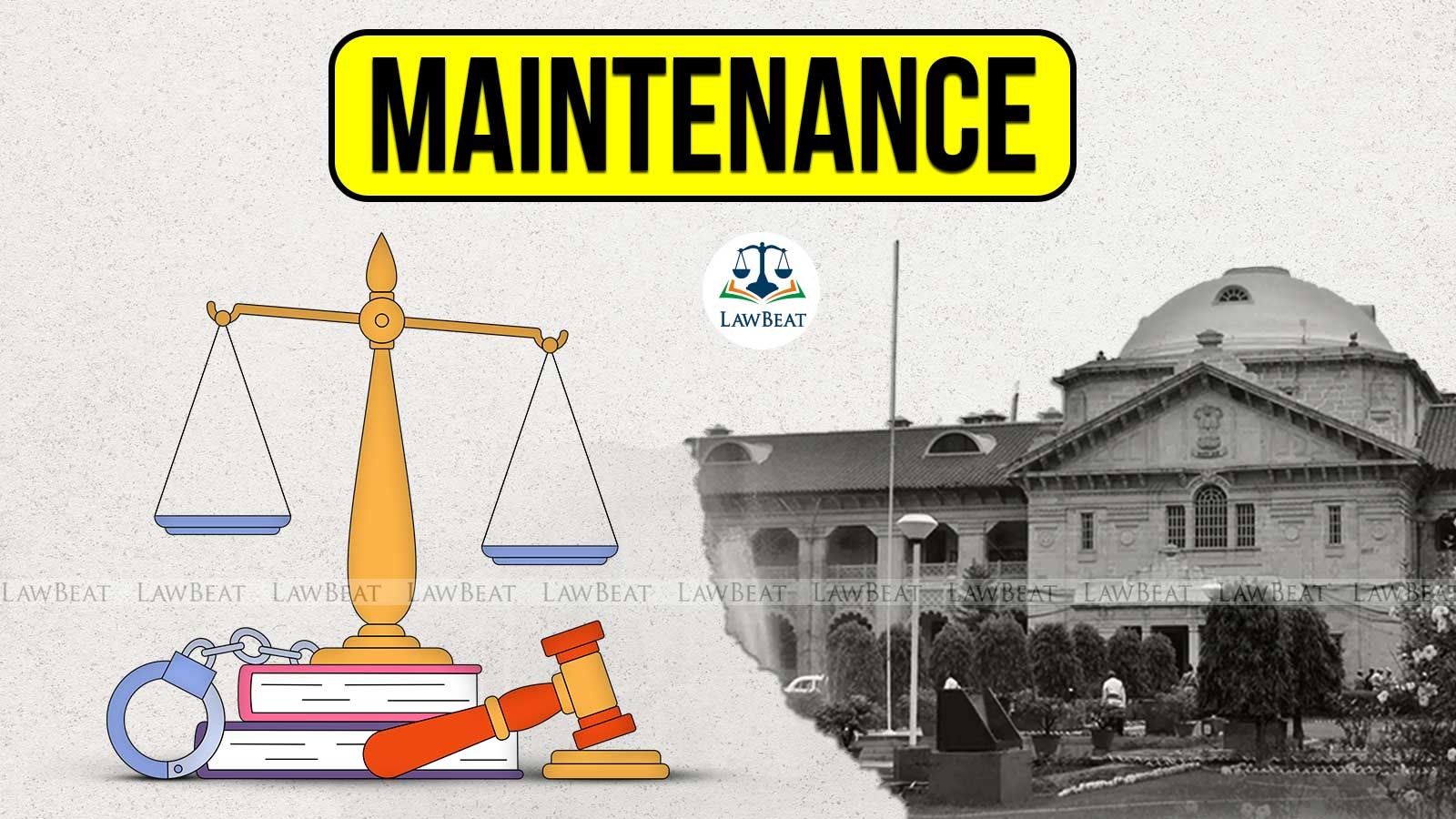Highest Maintenance Claim Must Be Prioritized in Multiple Matrimonial Proceedings: Allahabad High Court

An army officer challenged additional maintenance orders passed by the family court, arguing undue financial burden as 22% of his salary was already deducted as payment of maintenance allowance to his wife under an Army Order
In multiple matrimonial proceedings, the Allahabad High Court emphasized that the plea claiming higher or highest maintenance must be decided first. This pragmatic approach, the court said, is essential to avoid duplication of proceedings and conflicting maintenance orders.
The bench of Justices Saumitra Dayal Singh and Donadi Ramesh made the observation while dismissing an appeal by an army officer who challenged multiple maintenance orders issued by a family court in favor of his estranged wife.
The case involved an army officer, a Lance Naik, whose salary was already subject to a 22% deduction under Army Service Rules to provide maintenance for his wife. Despite this, the Family Court in Etawah passed separate maintenance orders under Section 24 of the Hindu Marriage Act, 1955, directing him to pay an additional Rs 5,000 per month, along with a lump sum of Rs 10,000 for legal expenses. The appellant argued that these orders imposed an undue financial burden, as he was already fulfilling his maintenance obligations through salary deductions.
The appellant’s primary grievance was that the family court failed to account for the deductions already being made under the Army Order. He claimed this resulted in double recovery of maintenance, with separate claims also pending under Section 125 of the Criminal Procedure Code (Cr.P.C.) and the Protection of Women from Domestic Violence Act, 2005. He argued that this multiplicity of proceedings not only caused financial hardship but also wasted valuable time in managing overlapping legal obligations.
On the other hand, the respondent-wife defended the multiple applications, asserting her statutory rights under different laws to seek maintenance. Her counsel argued that each law offered separate legal avenues for claiming maintenance, and the orders were justified given her lack of an independent income.
In addressing the overlap, the high court referred to the Supreme Court's decision in Rajnesh v. Neha & Anr (2021), which established clear guidelines to prevent conflicting maintenance orders in matrimonial disputes. The judgment directs courts to ensure that the highest maintenance claim is addressed first, avoiding unnecessary duplication and ensuring fairness in the distribution of financial obligations. Despite these guidelines, the high court observed that lower courts in Uttar Pradesh continue to issue multiple orders without considering pre-existing maintenance awards.
The bench reiterated that while the respondent is entitled to file claims under different statutes, courts must prioritize the highest claim to avoid duplicative financial and legal burdens on the paying spouse. It also expressed concern about the growing number of similar cases where multiple maintenance orders are passed, creating confusion and financial stress for litigants.
In dismissing the army officer’s appeal, the division bench opined that the deductions under the Army Order, which amounted to Rs 11,000 per month, were sufficient to satisfy the maintenance claim under Section 24 of the Hindu Marriage Act. It directed that no further recovery of maintenance should be pursued unless the monthly amount awarded under other enactments exceeded the Army Order's deduction. It further ordered the appellant to clear any outstanding arrears within one year.
Apart from that, court directed the copy of the present order to be communicated to the Registrar (Compliance) to be communicated to all Principal Judges of the Family Courts in the State of U.P. with a further direction that they may ensure strict compliance of the law laid down by the Supreme Court in Rajnesh Vs. Neha & Anr.
"For that purpose, they may hold regular interactive sessions involving all subordinate officers at their respective stations and such meetings be repeated whenever any new judicial officer joins the Family Court establishment, at that station," it directed.
Moreover, court opined that an urgent need exists for action - to frame/revise and communicate relevant Service Rules/Norms/Guidelines governing government/public servants and those receiving salaries etc. either directly or indirectly from state funds.
Accordingly, court ordered that a copy of the present order be also communicated to the Government of India and the State Government of Uttar Pradesh to consider and frame appropriate Rules/Norms/Guidelines to provide for payment of maintenance allowance to estranged spouses of all employees of the governments and institutions etc. falling under the control of governments on such criteria as may be required and at such scale/rate as may be specified.
Court sought details of such Rules/Norms/Guidelines by February 28, 2025, and directed that those Rules/Norms/Guidelines may be compiled systematically and communicated to all Family Courts, State Legal Service Authority and Judicial Training & Research Institute, preferably by March 31, 2025.
Case Title: xxx v. yyy
